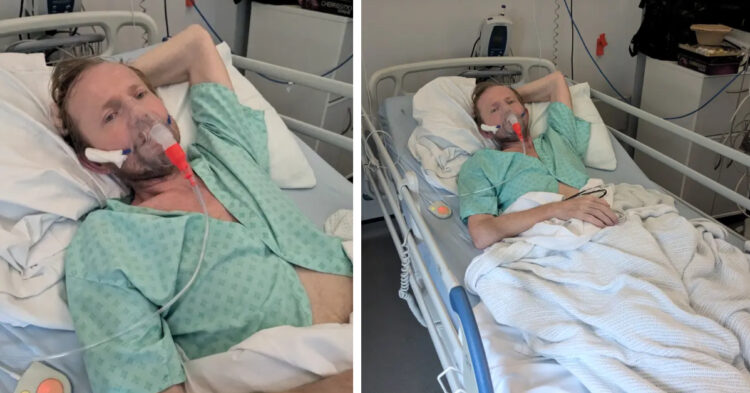A stoneworker’s fight against workplace hazards takes on new urgency as his terminal illness highlights the dangers of crystalline silica dust. Despite enduring difficult conditions, London-based stoneworker Mark Marzec hopes his story will prompt reforms to protect others in his profession from similar risks.
In his final weeks, he wants others to understand the risks his job entails

Marek Marzec, 48, a Polish father of three, has only a few weeks left to live due to an occupational lung disease. His role as a stoneworker in the UK — where he worked cutting kitchen countertops since 2012 — led to his diagnosis with silicosis, a life-threatening condition that causes scarring and inflammation in the lungs.
Silicosis from years of silica exposure left him unable to undergo surgery

Marzec was told he’s too ill to attempt the only possible cure — a lung transplant. He has no other avenues available to him, and is currently receiving end-of-life care in North London. However, even while dying, Marzec is fighting to make sure the public knows how unregulated stonework is in the UK.
Silica dust, which present in natural stone and sand, is harmful when inhaled over time
Embed from Getty Images
Silica is found in stone, rock, sand, and clay. Cutting or working with these materials creates dust that embeds in the lungs and can lead to long-term damage, including silicosis. This is especially prevalent in stoneworkers, who cut quartz for kitchen and bathroom countertops with insufficient PPE.
Marzec’s fellow stoneworkers have also spoken up
Embed from Getty Images
Marzec is not alone; silicosis is allegedly affecting stoneworkers across the UK and beyond, many of whom are now pressing for regulatory changes. His lawyer, Ewan Tant, is representing several clients in similar situations.
“No one should end up facing the bleakest of outcomes simply as a result of going to work,” Tant told the Daily Mail.
His case is getting national attention
Embed from Getty Images
Since his diagnosis, Marzec’s health has deteriorated quickly, bringing his case into the public eye. He remains under the care of occupational lung disease expert Dr. Jo Feary at Whittington Hospital in North London as his legal case against former employers progresses.
Severe breathing issues have made his life painful and difficult to bear
Embed from Getty Images
Stoneworkers with silicosis suffer debilitating symptoms, including severe difficulty breathing and extreme fatigue. Marzec described the “terrible pain” he endures and the frustration of having his life cut short by an illness he believes could have been prevented with proper safeguards.
Without intervention, more deaths are anticipated in the years ahead

Tant warned that more lives may be lost if the conditions for stoneworkers remain unchanged. He expressed deep concern over the “appalling conditions” Marzec and others endured, emphasizing that no one should face such consequences simply for going to work.
“This is a tragic case, with my client now on end-of-life care as a result of working with engineered stone, in what he alleges were appalling conditions, totally unfit for purpose,” he said.
All Marzec wanted was a better life
Embed from Getty Images
Marzec moved to the UK to secure a better future for his young daughters. Instead, he now faces a premature end, admitting, “I cannot tell you how angry I am that I was allowed to work in these conditions.” His anger fuels his plea for action to protect other workers.
Many stoneworkers believe that current health standards are not enough
Embed from Getty Images
Marzec and other affected stoneworkers are pushing for better health standards and safety protocols, which they feel are inadequate. They demand reforms to prevent further tragic outcomes for workers who unknowingly put their health on the line every day.
For Marzec, the goal is to prevent similar fates for future workers
Embed from Getty Images
From his hospital bed, Marzec urged for “urgent action” against dangerous conditions in the industry. His heartfelt message calls for immediate regulatory change to protect others, ensuring that no worker should endure the fate he and others are now facing.

















































